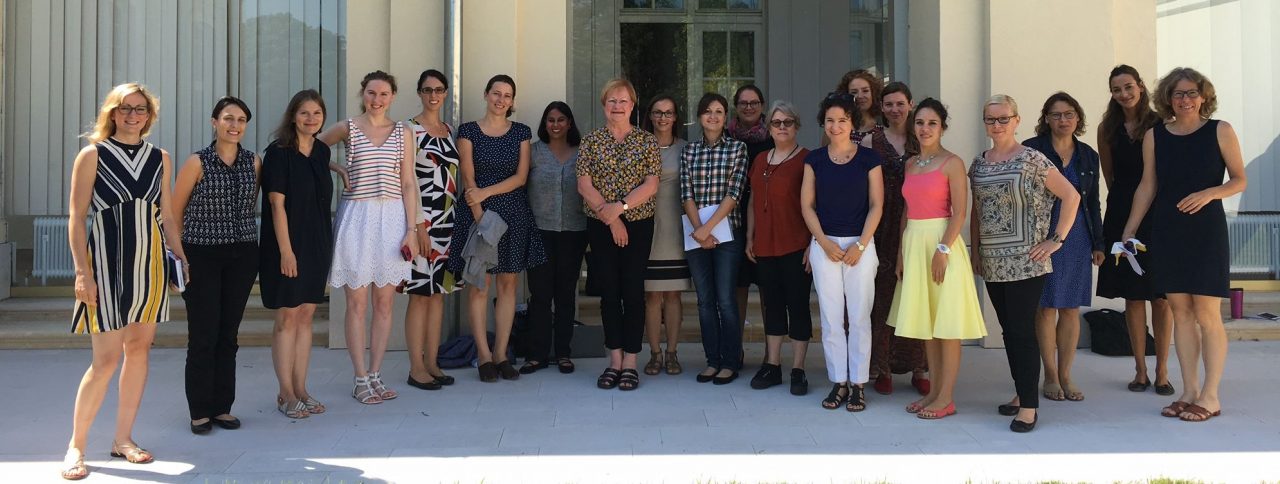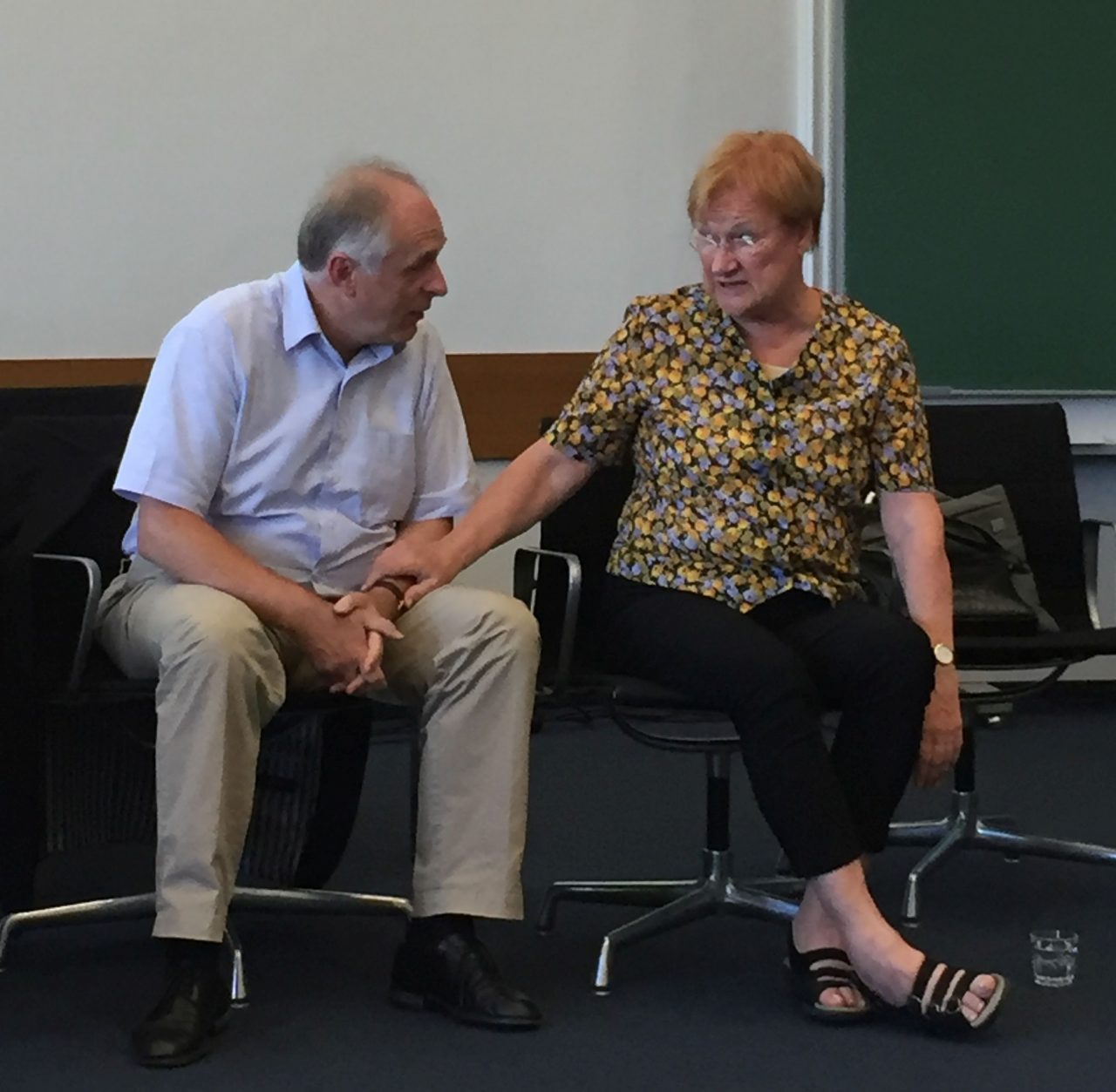By Daisy Brickhill, IIASA science writer and editor.
“If you are the first to break a glass ceiling, you’re the one who gets scratched.” Tarja Halonen is a first for many things. She was the first female trade unions lawyer in Finland, the first female foreign minister for the country, and its first female president. She was also the first ex-president to spend her sabbatical at IIASA, meeting staff and discussing the institute’s work.
With a career rooted in social justice and a firm commitment to human rights, Halonen was eager to engage all at IIASA in discussions on equality and diversity, both within the institute and in wider society.
Damaging gender stereotyping was a theme which was touched on often in the Women in Science session, a meeting of female scientists from all disciplines and of all ages from around the institute. Halonen spoke of her own experiences of the monotonous gender pigeon-holing she experienced in politics “If you are married as a female politician you are either there because you have a strong man behind you or you are neglecting your family. And your appearance is always fair game. I remember the media saying that my handbag was too big. I was betraying the people of Finland with my big handbag!”

Women in science session with President Halonen at IIASA. © Michaela Rossini | IIASA
A key stereotype that can strongly affect both women and men is that childcare is “women’s work,” and as such unimportant. Parents of both genders should be supported to be active members of their own family. Men are often excluded from this—there is no statutory paternity leave in Austria, for instance—and women, expected to take on the majority of caring, are in turn excluded from their careers at a key point, especially if childcare services are poor or prohibitively expensive.
So how do we change things? All participants were eager to discuss ways of improving the situation. We can start by working from the bottom up, Halonen urged, doing everything we can in our immediate environments to improve things. Discuss diversity and equality issues as often as you can with as many people as you can. Be aware of your own unconscious biases, perhaps attend training to help challenge yourself, not just about gender but all types of diversity. Build pressure by enlisting the help of those outside your workplace too—visitors, funders, boards, and committees.
At this point in the Equality and Diversity session the door opened to admit IIASA Director General and CEO Professor Pavel Kabat, and Halonen turned to him with a twinkle in her eye: “Ah Pavel, we are so pleased to see you! You have come at exactly the right time, we were just discussing how we can change you and the whole institution.”

President Halonen and Prof. Dr Kabat © Katherine Leitzell | IIASA.
Engaging with the discussion, Kabat said “We are looking into improving things at IIASA, especially through our new human capital management.”
Importantly, the case is not hard to make: diversity and equality is good for everyone. “Even if we limit our argument to money alone we can still see clear benefits,” says Halonen. “Giving women more equality in Finland actually caused a rise in the country’s GDP. Turns out it wasn’t a smart financial decision to exclude half the population.” What a surprise.
Top-down measures also have their part to play. Quotas for gender balance—on panels or in committees for instance—can be controversial but they needn’t be, says Halonen briskly. “Set the limits at 40:60 in either direction, and remember, quotas are not the end point, they are a step towards something.” Seeing women in positions of power is important not just as role models for other women, it is important for men, young men and boys in particular, who will grow up happy to work for a female boss, and benefit from collaborations with female colleagues based on mutual respect.
Compulsory paternity leave is another controversial top-down measure that may help change attitudes. One participant in the Equality and Diversity session said that he would welcome this, and not only on a personal level. “I can imagine it would benefit not just the individual fathers and children but society as a whole, IIASA should do studies on this.”
There is hope in the air. As part of the Sustainable Development Goals all 193 member states of the UN have agreed that we need to achieve gender equality. Despite this, change won’t come as a single revolution, Halonen warned, it will come bit by bit as attitudes and rules slowly change. IIASA, as a thought-leader on sustainability transformations, can be a pioneer. After all, having equality and diversity at IIASA, an institute that aims to tackle problems across the globe, bridging cultures, peoples and genders, can only improve our science.
Further info
Lecture by Her Excellency Tarja Halonen
Note: This article gives the views of the author, and not the position of the Nexus blog, nor of the International Institute for Applied Systems Analysis.

Great post! Looking forward to seeing some of the changes. Optional or mandatory paternity leave would bring fairness for researchers raising families but, gender equality does not need to be framed or targeted toward men to be worthwhile. Action should first reduce discrimination at any institutional level, such as in hiring, the wage gap, health insurance, and sexual harassment. As the Pres. Halonen noted, gender equity and women’s rights are human rights.